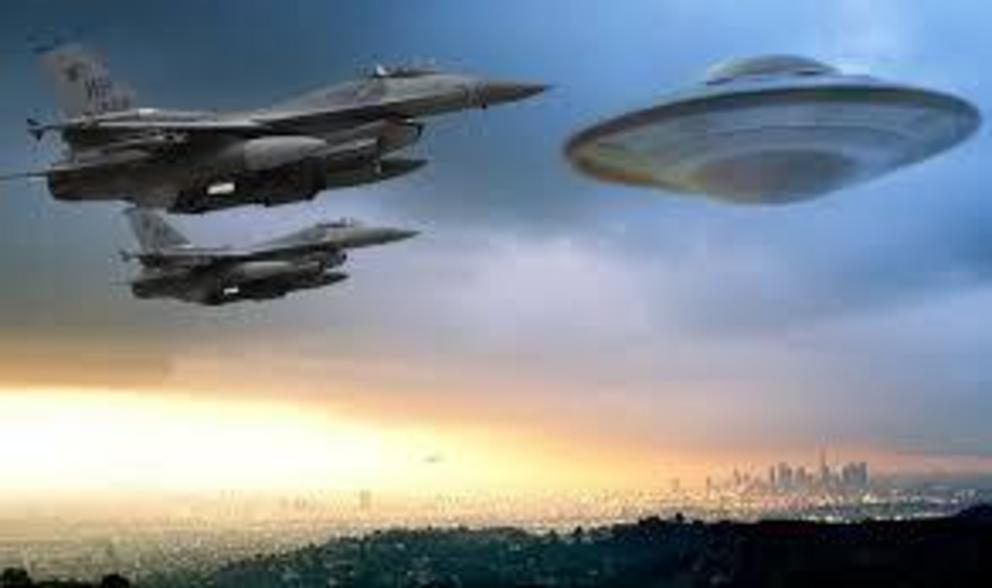Admiral: UFO encounters occurred during ‘finite period’
During a panel at last month’s Aspen Institute’s Aspen Security Forum, an audience member asked Admiral Philip Davidson about reports of UFOs. Davidson replied that the Navy has new UFO reporting guidelines and that the UFO events occurred during “a finite period.”
This information comes via a tweet from Politico’s defense editor, Bryan Bender. Bender has been following recent UFO developments at the nation’s capital. He broke the story regarding the U.S. Navy developing new guidelines for reporting UFOs, and appeared on the History Channel’s Unidentified: Inside America’s UFO Investigation.
Bender moderated a panel at the forum on Friday, July 19. However, on Thursday, he tweeted:
“Audience member @AspenSecurity asks @INDOPACOM commander about Navy reports of UFOs. Chuckles all around but Adm. Phil Davidson responds that there is now a reporting process for these unexplained sightings and says the encounters were during ‘a finite period.’”
Four-Star Admiral Philip Davison is the commander of the U.S. Indio-Pacific Command. What I find interesting is that he was aware of the UFO issue, and apparently more than just the recent news about new reporting guidelines. But, what did he mean when he said the encounters were during “a finite period?”
History’s Unidentified revealed that Navy pilots involved with two separate incidents briefed lawmakers and military leadership. The first encounters occurred over several days in November of 2004. The Nimitz carrier strike group caught odd objects on radar. The Nimitz scrambled jets and Wing Commander David Fravor engaged an object he described as looking like a 40-foot long white Tac Tac. After a short time, the object darted off at an incredible speed.
The second set of encounters covered on Unidentified were similar. In this case, it was the USS Roosevelt carrier strike group that encountered odd radar readings off the coast of Florida in 2014 and 2015. At one point, a UFO described as a clear ball with a cube in it passed in-between two jets. According to the show, the objects followed the USS Rosevelt to the middle east.
These encounters span from 2004 to 2015. Is that the finite period Davidson was talking about? Could there be even more Navy UFO cases that the public is not aware of?
I asked Bender what he thought Davidson meant. He says only Davidson knows what he meant for sure, but Bender thinks Davidson might have suggested that they only spot UFOs occasionally. It isn’t something that happens all of the time.
In a conversation on twitter, defense writer Tyler Rogoway of The Drive’s War Zone told me he felt Davidson’s comment seemed accurate given what has been disclosed about the 2004 and 2014-2015 encounters. Rogoway also notes that Navy pilot Ryan Graves never specifically states they encountered UFOs in the middle east, just that they occasionally saw “radar signatures that performed in ways that were consistent with our experiences back home.”
Rogoway’s observation is interesting. He has been reporting on these incidents and sees a commonality to the events that may be important. For instance, in both cases, new cutting edge sensor technologies were being deployed. He finds this similarity, “especially intriguing and may point to the possibility that these events were tests of highly exotic and secret technology belonging to the U.S. military or even deployed by its adversaries.”
“We have to stress that this is just one of a number of possibilities and cocktails of possibilities and does not provide a definitive explanation for these incidents at this time,” Rogoway adds.
In a previous article, Rogoway noted that these encounters reveal “that technology exists that is capable of performing flying maneuvers that shatter our perceptions of propulsion, flight controls, material science, and even physics.”
If the UFO encounters were limited to these two locations and aircraft that were testing new sensor technologies, the possibility would exist that someone else was testing how these sensors would react to their next-generation propulsion technology.
In May, at the McMenamins UFOfest, Fravor told the audience of a panel he participated in that he thought it might be secret advanced technology he encountered as well. However, he says as the years went by, and this technology never came to light, he began to doubt that idea. He said he felt there was no way he would not have heard something about this new development if it existed.
Davidson could be thinking along the same lines as Rogoway, and his comment might have given us a glimpse into the direction of the Navy’s UFO investigation. The conspiracy-minded will say he was seeding doubt to throw the press off of the extraterrestrial origins of the UFOs the Navy encountered.
There is another revelation that we can distill from the question Davidson was asked. The crowd, likely mostly made up of defense reporters and industry insiders, laughed when the UFO question was posed. Rogoway called this reaction from his colleagues “disgusting.”
The laughter shows that despite the serious attention the UFO topic has received, Rogoway and Bender are also anomalies. Their colleagues are not quite ready to take a UFO question seriously. Fortunately, the Admiral did not consider the matter a laughing matter.

